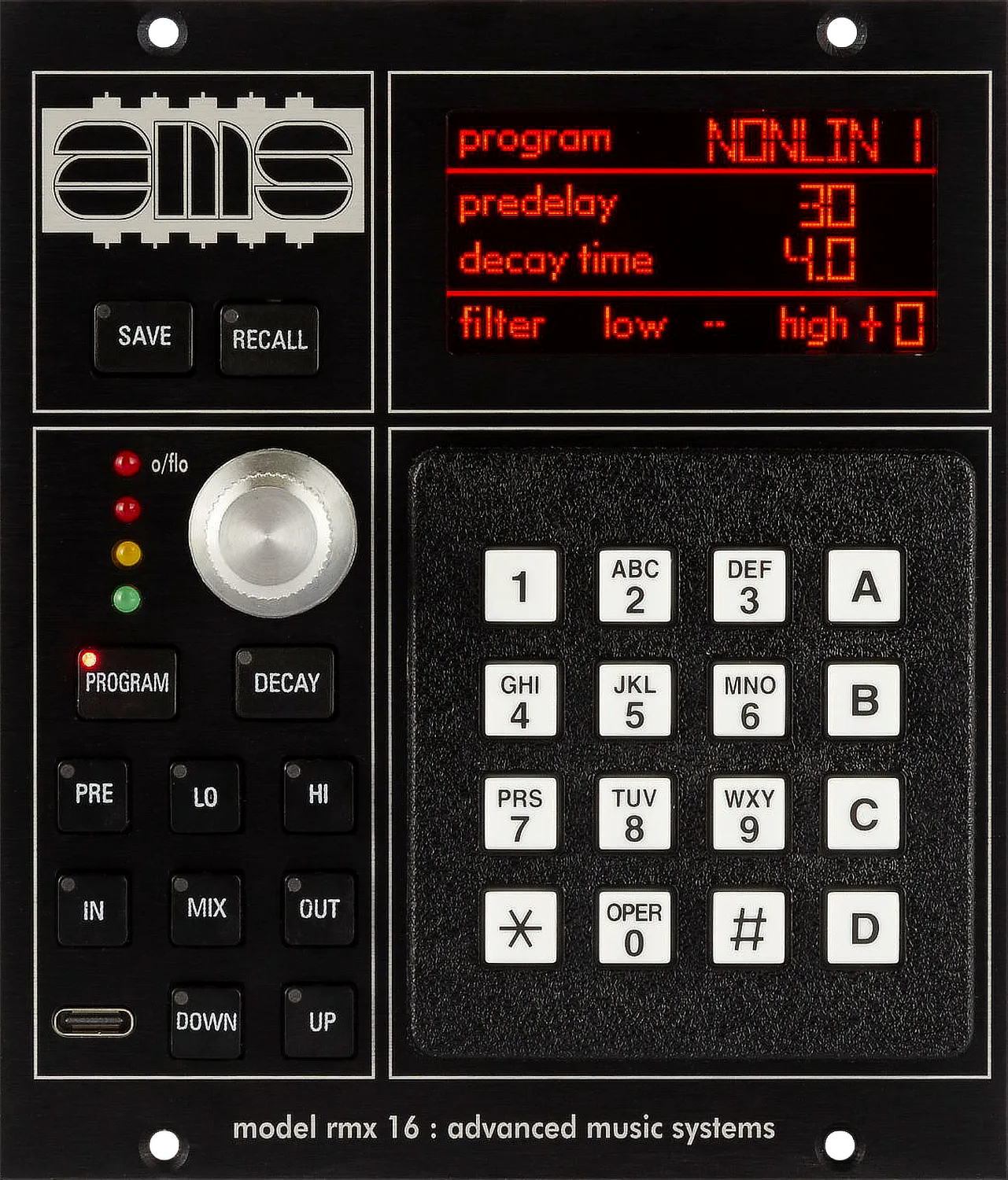The AMS DMX 15-80S is a true stereo microprocessor controlled digital delay line. Originally designed to meet specifications laid down by the British Broadcasting Corporation for equipment to be supplied to them, it offers two completely independently delayed channels with precisely controlled delay times.








